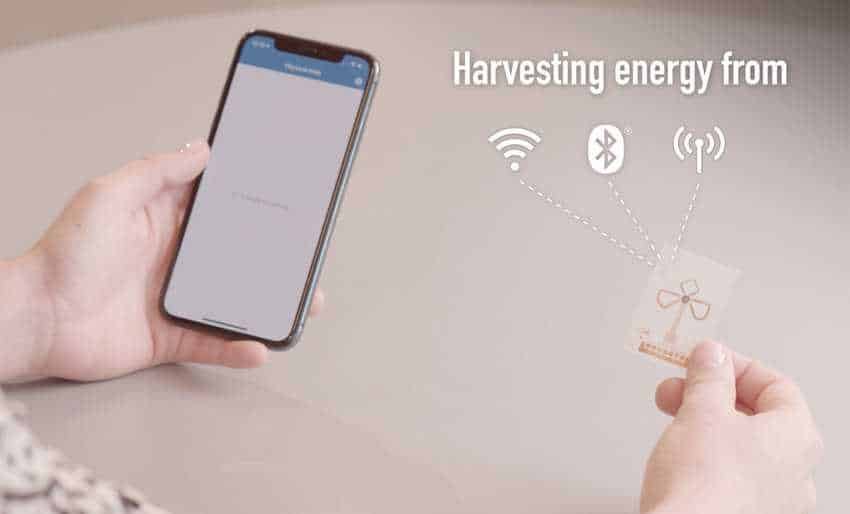Bluetooth sensors play a key role in Internet of Things (IOF) devices, but there is a limitation. They need a battery or some other valuable energy source to work on.

It seems that in our world there is a somewhat odd source of energy, since the industrial semiconductor manufacturing company Wiliot made a tab that contains a Bluetooth sensor that works to collect energy from ambient radio frequencies and does not require any kind of batteries or other power source.
All the energy needs of ARM chips are based on one printed antenna in a small piece paper ή πλαστικό και έτσι μπορεί να μεταδώσει πληροφορίες όπως το βάρος και η θερμοwinea, without any kind of battery.
Η προσέγγιση χωρίς μπαταρίες θα μπορούσε να οδηγήσει στη κατασκευή αυτοκόλλητων ετικετών σε διάφορα προϊόντα, που δεν υπάρχει μέχρι στιγμής η δυνατότητα αυτή. Τα ρούχα, για παράδειγμα, θα μπορούσαν να σας προειδοποιήσουν όταν πρόκειται να τα καταστρέψετε από υψηλή temperature στο πλύσιμο, ή ακόμα οι Companies They could locate the products until they reach your door. And since there are only a few extra materials involved in building a battery-free Bluetooth, these tabs would be very low cost.
The bluetooth tabs are ready to use 2020. To this end, Wiliot has just completed its $ 10 million 30 strategic alliance strategies with Amazon Web Services, Avery Dennison and Samsung.
Wiliot financiers believe this technology will succeed and in the near future you will see these tabs in wide use.
Watch the video below:





